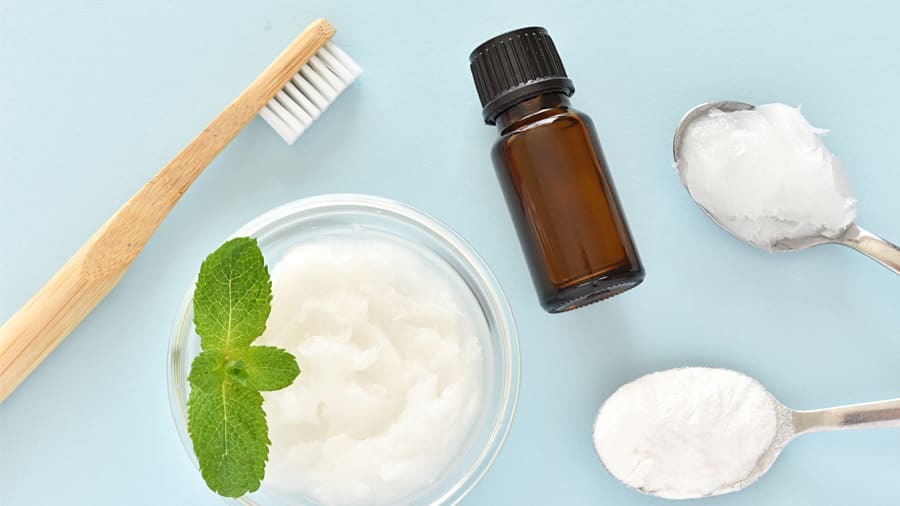-
-

TEETH WHITENING
What Is Stannous Fluoride Toothpaste?Stannous fluoride toothpaste helps prevent cavities, reduce sensitivity, fight plaque, and support daily gum and enamel health.

Selecting Dental Products
Best Toothpaste in India: Five Dentist-Recommended TypesToothpastes today are formulated to meet your every dental need and come in many flavours. Have your dental professional suggest the best toothpaste in India.
-
Science & Innovation
- ORAL HEALTH CHECK
- PRODUCT MATCH
- Colgate® | Toothpaste, Toothbrushes & Oral Care Resources
- Oral Health
- Selecting Dental Products
- Should You Try Coconut Toothpaste?


According to the National Health Portal of India, unsaturated fats (e.g. found in fish, avocado, nuts, sunflower, canola and olive oils) are preferable to saturated fats (e.g. found in fatty meat, butter, palm and coconut oil, cream, cheese, ghee and lard). Industrial trans fats (found in processed food, fast food, snack food, fried food, frozen pizza, pies, cookies, margarine and spreads) are not a part of a healthy diet. Recently, however, coconut oil seems to have lost its "unhealthy" status as more and more people consider its benefits for oral health. Coconut toothpaste and other oral care products are on the market, and there's been renewed interest in the ancient practice of oil pulling, often using coconut oil.
Should you seek oral care products that contain coconut? Let's take a closer look.
How Can Coconut Help Your Oral Health?
In natural health circles, people are quick to praise the effects of coconut oil as well as lauric acid, the natural acid it contains. While coconut might not be the miracle food people often make it out to be, there are studies that show that it may have some benefits when it comes to whole mouth health.
A research study published in the Journal of Health Research and Reviews in Developing Countries notes that the medium chain fatty acid (MCF) in coconut oil such as lauric, caproic, caprylic, myristic, and stearic acid influences the physical and chemical properties. Lauric acid, which is predominant in coconut oil, has proved to have antimicrobial, antiviral, and anti-inflammatory action. Of late, few studies have been conducted by researchers regarding the action of coconut oil on oral health. The review of literature shows excellent results on the use of coconut oil on oral health. . . .
A research study published in the Journal of Clinical and Diagnostic Research has shown that coconut oil is effective in reducing oral microbial load and decreasing plaque and gingival indices. Oil pulling using coconut oil is promising as it is easily available, safe and cost-effective adjuvant in oral hygiene maintenance.
If you're interested in the health benefits of coconut, the thing to keep in mind is that it can be helpful to use it in addition to, not instead of, your current oral care routine.
Should You Make Your Own Coconut Toothpaste?
Some people are so jazzed about coconut that they've decided to make their own oral care products with it. You don't have to look very far to find recipes for making your own toothpaste with coconut oil. Besides coconut oil, many online recipes include ingredients like baking soda, bentonite clay, and peppermint or citrus essential oils. You can make enough to fill a reusable jar or a small batch for just a few brushing sessions.
Although it's pretty easy to whip up your own coconut toothpaste concoction, it's worth remembering that you'll be missing out on some of the beneficial ingredients found in store-bought toothpaste, such as fluoride, a mineral that strengthens tooth enamel and reduces the risk of dental decay.
If you're not the DIY-type, you might have noticed a variety of oral care products on store shelves that contain coconut or coconut oil. If you're interested in trying them out, it's a good idea to talk to your dentist first. They can recommend the best type of coconut toothpaste, mouthwash and other oral care products to help you reach your oral care goals, such as getting fresher breath, whitening your teeth or improving the health of your teeth and gums.
This article is intended to promote understanding of and knowledge about general oral health topics. It is not intended to be a substitute for professional advice, diagnosis or treatment. Always seek the advice of your dentist or other qualified healthcare provider with any questions you may have regarding a medical condition or treatment.
ORAL HEALTH QUIZ
What's behind your smile?
Take our Oral Health assessment to get the most from your oral care routine
2.3 billion
people worldwide suffer from tooth decay
ORAL HEALTH QUIZ
What's behind your smile?
Take our Oral Health assessment to get the most from your oral care routine
2.3 billion
people worldwide suffer from tooth decay
Related Products

Helping dental professionals
More professionals across the world trust Colgate. Find resources, products, and information to give your patients a healthier future










